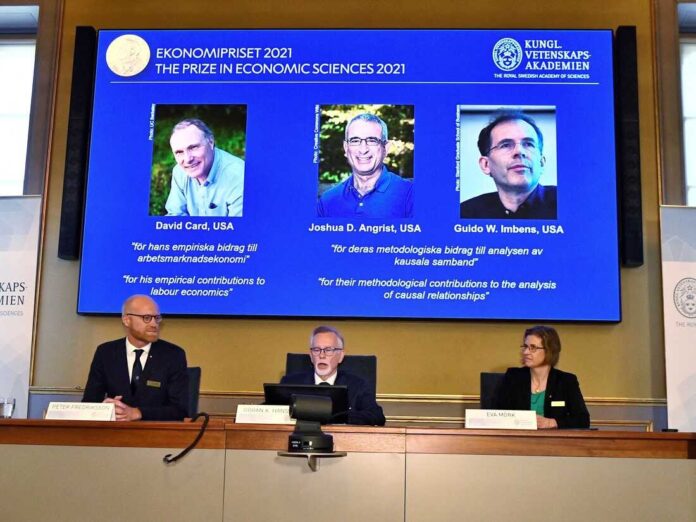By Sophie Zhu
In mid-October, the 2021 Nobel Prize in Economics recipients were announced to be Professors David Card (UC Berkeley), Joshua Angrist (Massachusetts Institute of Technology), and Guido Imbens (Stanford). Their 1:1:2 split of an over-one-million-US-dollar prize is their reward for their pioneering work of “natural experiments” in economic sciences.
Card frequently collaborated with Alan Krueger, a Princeton economics professor who served as an aide to both Clinton and Obama and would have surely shared the prize had he not passed away in 2019. In the 1990s, they sought to seek the effect of minimum wage on jobs. At the time, it was widely held that minimum wage kills jobs—at least, that was what economists’ theoretical models told them.
Card and Krueger, however, wanted to see this “minimum wage kills jobs” scheme play out in the real world, just like the way vaccine producers and researchers have used randomized trials on large and larger populations to determine efficacies. One group is the control group, whereas another is the treatment group. In the medical field, this procedure is relatively simple—it relies on and produces hard data. However, for social scientists like Card and Krueger, seeking out and dividing large samples of people for more ambiguous questions is much more difficult.
As a result, the two conducted a “natural experiment.” Noticing that New Jersey state raised the minimum wage, they treated regions of fast-food restaurants as their subjects. New Jersey fast-food restaurants composed the treatment group, whereas Eastern Pennsylvania fast-food restaurants served as the control group. And just like the procedure of medical trials, Card and Krueger examined any changes in employment for each region. Surprisingly, they found that the New Jersey increase in minimum wage did not kill off jobs.
Card later used this same technique to debase the theoretical economics results that immigrants lowered native-born workers’ wages. By inspecting the effect of the 1980 influx of Cuban immigrants, he found that this demographic change had no effect on non-Cuban workers’ wages.

